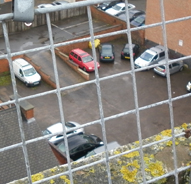A ‘Parking Code of Practice and Framework’ is proposed by the Government. It includes a maximum cap for parking fines; a ten-minute grace period before a late fine can be issued; and a requirement for parking firms to clearly display pricing and terms and conditions.
This covers England, Scotland and Wales; in Northern Ireland, Security Industry Authority (SIA) licensing of vehicle immobilisers applies.
Also proposed, a mandatory single Appeals Service and Appeals Charter for motorists to turn to if they believe that they are unfairly fined. What the ‘rogue firms’ which break the code could be barred from requesting Driver and Vehicle Licensing Agency (DVLA) data, making them unable to pursue motorists.
Communities Secretary Robert Jenrick described the proposed measures as ‘a victory for millions of motorists’. He said: “They will put a stop once and for all to rogue parking firms using aggressive tactics and handing out unfair parking tickets with no right to appeal, while also boosting our high streets by making it easier for people to park near their local shops without being unfairly fined. Our proposals will restore common sense to the way parking fines are issued, while cracking down on the worst offenders who put other people in danger and hinder our emergency services from carrying out their duties.”
A new British Standard, PAS 232 Privately managed parking – Operation and management, is available for public comment until October 12. The Government consultation on this parking code enforcement framework is also open to October 12.
The PAS (publicly available specification) does not cover on-street parking.
Background
The UK has two parking trade associations, the British Parking Association (BPA) and the International Parking Community. Each has a Code of Practice to cover its members.
This proposal by the Government arose from its support for the Parking (Code of Practice) Act 2019, as introduced by Sir Greg Knight, Conservative MP for East Yorkshire, which itself arose from perennial concerns about the poor practice and behaviour by some parking operators.
The incoming Coalition Government in August 2010 announced that wheel clamping on private land would be banned in England and Wales; as made law in the Protection of Freedoms Bill in 2011; in the years before, under the previous Labour Government, SIA badging had taken in wheel clampers in England and Wales, part of the early raison d’etre for the regulator in the 2000s; but proved unpopular and unworkable.










